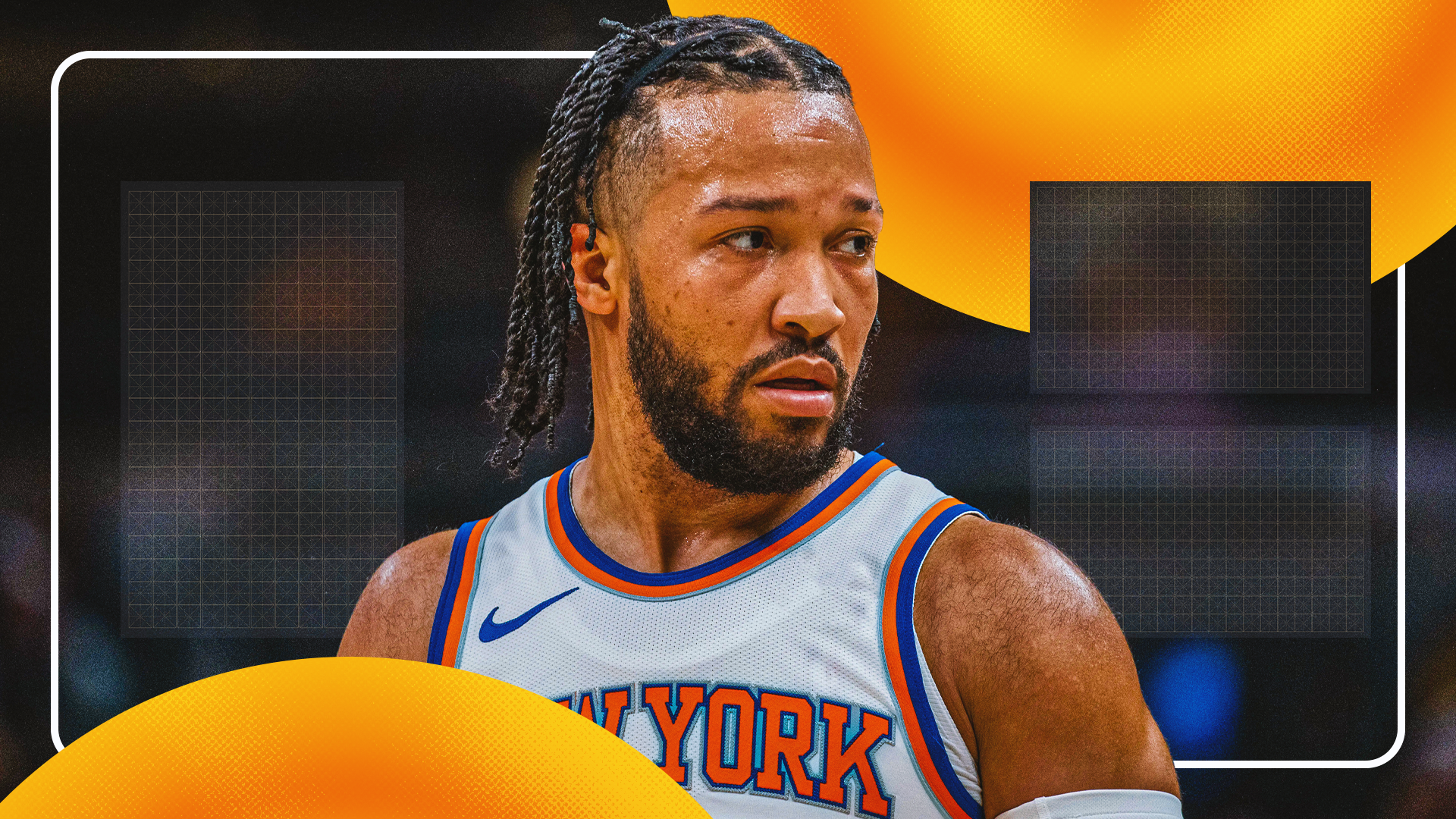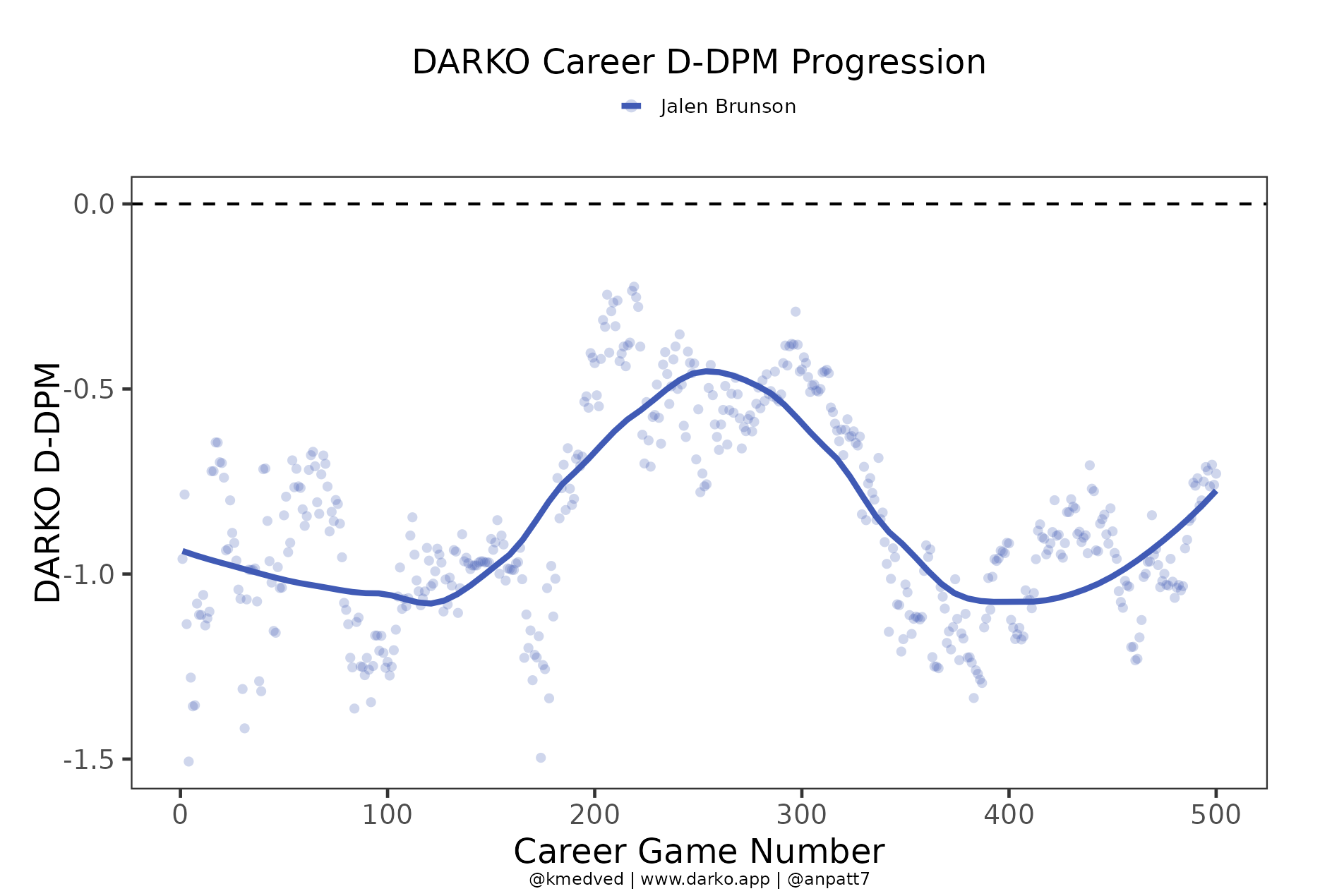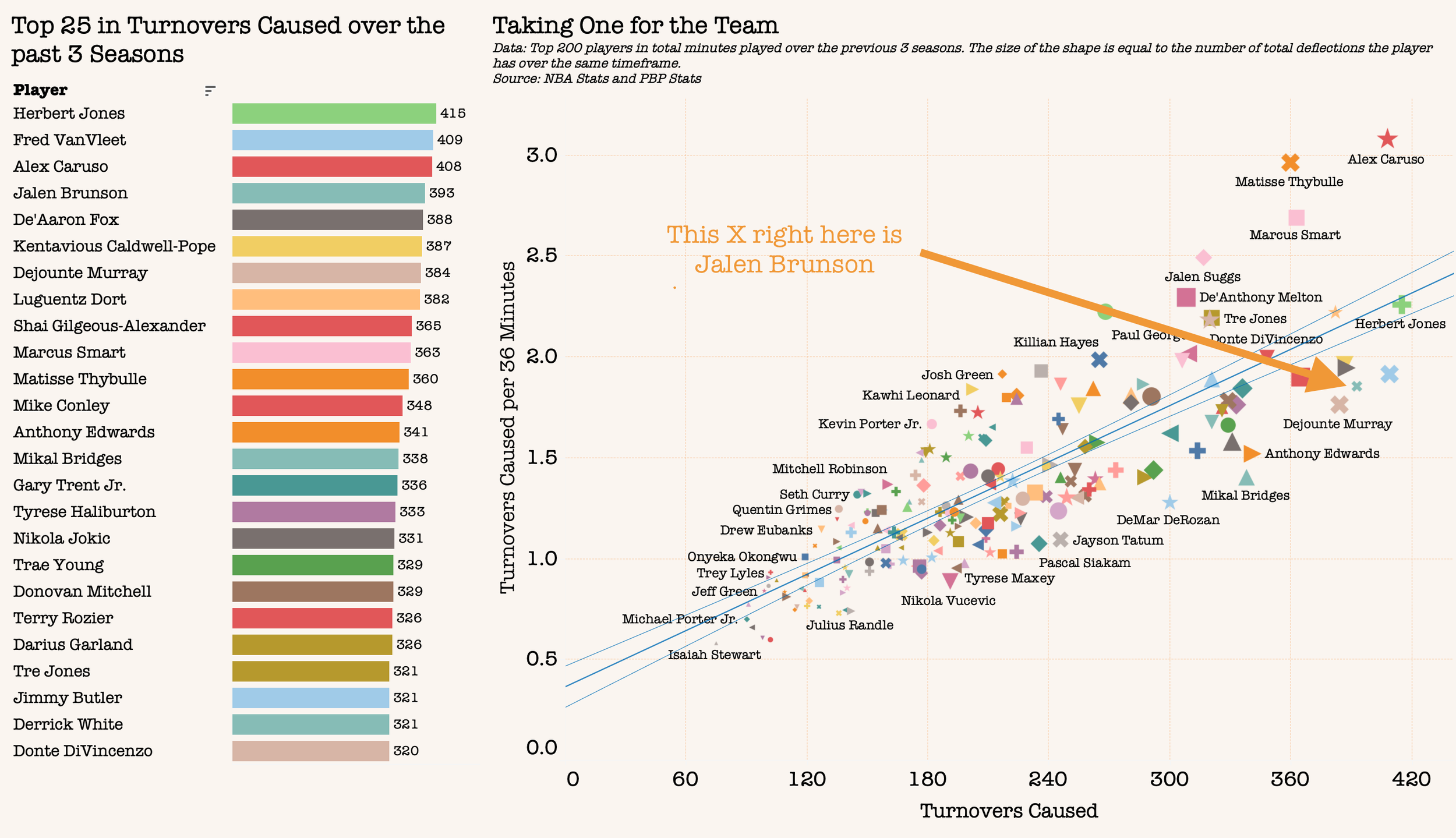Is Jalen Brunson actually a bad defender?
You have to keep reading
I’m posing a question that goes against conventional wisdom and talking points: Is Jalen Brunson actually a bad defensive player? The all-in-one impact stats suggest he is a net negative. Basketball-Reference’s defensive box plus-minus (DBPM) has Brunson’s career figure at -0.4, also his DBPM last season. Estimated Plus-Minus from Dunks & Threes has Brunson’s defensive EPM at -0.5; historial 3-year defensive regularized adjusted plus/minus from 2020–2023 at -0.58 (RIP, nbashotcharts.com); and DARKO’s defensive daily plus/minus finds him fluctuating between -0.5 and -1.
Brunson is often discussed as some sort of defensive liability who’s detrimental to New York’s success on that end. Measuring defensive impact is (still) the hardest thing to do with statistics. We have publicly available stats such as contested shots and player matchup data, but those are flawed ways to measure defense. The ultimate goal of NBA defenses is to prevent a shot from occurring; if a shot is being contested, technically that’s failed D. And simply knowing whether or not the shot was contested is irrelevant in terms of measuring impact, because it’s the quality of the contest that’s important, not the contest itself.
Why does that sound familiar? Well, that’s because I wrote those sentences when the New York Knicks signed Brunson two years ago. And these:
“Brunson’s size doesn’t make things easy for him as a point of attack defender. He is stocky, though, and that usually helps out smaller guys on defense (Kyle Lowry, Fred VanVleet). If we assume that Brunson’s offensive responsibilities are going to be increased compared to his time in Dallas, will he expend the energy needed to fight over every screen and hold his ground on mismatches? Pairing Brunson with Evan Fournier is absolutely a recipe for disaster, so I hope that the Knicks at the very least have Fournier off the bench and start Immanuel Quickley (or Quentin Grimes, but it needs to be Quickley, let’s be real). Brunson strikes me as a guy who does care about winning, so he’s going to do his best to improve on defense. I want to see his icon above the trend line for next year, though.”
Ahh, yes. Remember when Fournier was the starting two-guard? Feels like millenia ago.
Since then, Brunson has been the best in the NBA at generating offensive fouls. Including his last year with Dallas, Brunson has drawn 78 charges the past three seasons; include all non-charge offensive fouls drawn and that number goes up to 196. Forcing the offense to foul is an overlooked aspect of defense. It’s not as glamorous as OG Anunoby picking the pocket of a ballhandler as he goes coast-to-coast for a dunk, nor as highlight-worthy as a chasedown block. And yet, like steals, offensive fouls are turnovers, and turnovers are bad. Turnovers are the clearest datapoint for either bad offense or good defense because the shot was prevented. Brunson happens to be one of the best at causing them.
By no means does any of this advocate Brunson is some defensive savant. Don’t be surprised if someone on Twitter reads this and does a film thread detailing video evidence of how poor of a defensive player Brunson is, maybe show him getting caught in screens or blown by in isolation. Who knows? Those people, however, would need to reconcile the publicly available statistics we have from those play-types last year ranking Brunson in the 77.7th percentile in pick-and-roll defense and 99.7th percentile in isolation defense.
Even though he rates as a negative defender in the individual impact plus-minus stats by less than a point per 100 possessions, I don’t think you can say he’s a “bad” or “poor” defender. On the other hand, saying he’s “good” or “plus” certainly comes off as wearing blue-and-orange colored glasses. And if that’s the case, do we just ignore the statistics that say he’s a plus defender? The least we can do is monitor how the statistics rate him this season. If he’s going to lead the league in offensive fouls drawn, maintain those play-type percentiles, and rate closer to a 0.0 plus/minus than -1.0, we’ll need stop to saying Jalen Brunson is a liability on defense.




